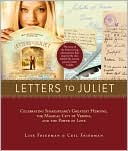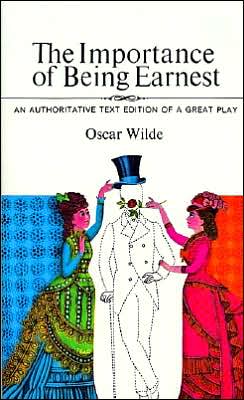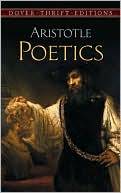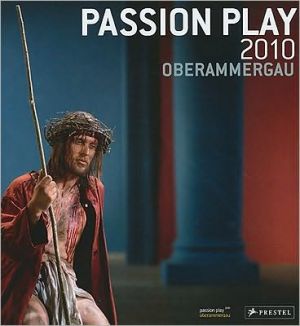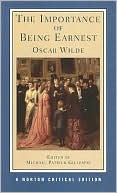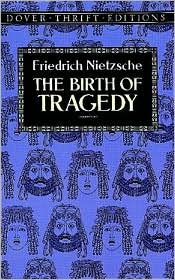Will in the World: How Shakespeare Became Shakespeare
"So engrossing, clearheaded, and lucid that its arrival is not just welcome but cause for celebration."—Dan Cryer, Newsday\ Stephen Greenblatt, the charismatic Harvard professor who "knows more about Shakespeare than Ben Jonson or the Dark Lady did" (John Leonard, Harper's), has written a biography that enables us to see, hear, and feel how an acutely sensitive and talented boy, surrounded by the rich tapestry of Elizabethan life; full of drama and pageantry, and also cruelty and danger;...
Search in google:
"So engrossing, clearheaded, and lucid that its arrival is not just welcome but cause for celebration."—Dan Cryer, NewsdayThe New York Times - Michiko KakutaniThere are no obscure invocations of the French philosopher Michel Foucault in these pages, no pseudo-Marxist readings of Shakespeare's plays. Instead, in the opening sections of this book, Mr. Greenblatt succinctly and vividly conjures up the Elizabethan world in which young Will came of age, showing how the religious and political upheavals of the day, as well as contemporaneous aesthetic conventions, shaped his sensibility and his work.
Ch. 1Primal scenes23Ch. 2The dream of restoration54Ch. 3The great fear87Ch. 4Wooing, wedding, and repenting118Ch. 5Crossing the bridge149Ch. 6Life in the suburbs175Ch. 7Shakescene199Ch. 8Master-mistress226Ch. 9Laughter at the scaffold256Ch. 10Speaking with the dead288Ch. 11Bewitching the king323Ch. 12The triumph of the everyday356
\ Michiko KakutaniThere are no obscure invocations of the French philosopher Michel Foucault in these pages, no pseudo-Marxist readings of Shakespeare's plays. Instead, in the opening sections of this book, Mr. Greenblatt succinctly and vividly conjures up the Elizabethan world in which young Will came of age, showing how the religious and political upheavals of the day, as well as contemporaneous aesthetic conventions, shaped his sensibility and his work.\ — The New York Times\ \ \ \ \ Arthur Kirsch… Greenblatt has unusual talents. He is learned, he marshals an enormous amount of detail in the book, and he depicts the fabric of Elizabethan life, both its paranoia and festivities, compellingly. He is a masterful storyteller; his prose is elegant and subtle, if sometimes slippery; and his imagination is rich and interesting. When he focuses more exclusively on Shakespeare's texts, as he does in his chapter on the sonnets, he is a brilliant critic. One can see why Will in the World is a nominee for the National Book Award.\ — The Washington Post\ \ \ Publishers WeeklyThis much-awaited new biography of the elusive Bard is brilliant in conception, often superb in execution, but sometimes-perhaps inevitably-disappointing in its degree of speculativeness. Bardolators may take this last for granted, but curious lay readers seeking a fully cohesive and convincing life may at times feel the accumulation of "may haves," "might haves" and "could haves" make it difficult to suspend disbelief. Greenblatt's espousing, for instance, of the theory that Shakespeare's "lost" years before arriving in London were spent in Lancashire leads to suppositions that he might have met the Catholic subversive Edmund Campion, and how that might have affected him-and it all rests on one factoid: the bequeathing by a nobleman of some player's items to a William Shakeshafte, who may, plausibly, have been the young Shakespeare. Nevertheless, Norton Shakespeare general editor and New Historicist Greenblatt succeed impressively in locating the man in both his greatest works and the turbulent world in which he lived. With a blend of biography, literary interpretation and history, Greenblatt persuasively analyzes William's father's rise and fall as a public figure in Stratford, which pulled him in both Protestant and Catholic directions and made his eldest son "a master of double consciousness." In a virtuoso display of historical and literary criticism, Greenblatt contrasts Christopher Marlowe's Jew of Malta, Elizabeth's unfortunate Sephardic physician-who was executed for conspiracy-and Shakespeare's ambiguous villain Shylock. This wonderful study, built on a lifetime's scholarship and a profound ability to perceive the life within the texts, creates as vivid and full portrait of Shakespeare as we are likely ever to have. 16 pages color illus. not seen by PW. Agent, Jill Kneerim. (Sept.) Copyright 2004 Reed Business Information.\ \ \ \ \ Library JournalGreenblatt (humanities, Harvard; Hamlet in Purgatory) here provides a vivid and plausible version of the undocumented areas of Shakespeare's life. Drawing heavily on literary studies and his impressive knowledge of cultural history to amplify the few known facts about Shakespeare, Greenblatt re-creates a life for Shakespeare that is possible; however, he provides little definitive data to support his conclusions. Short bibliographic essays for each chapter listing Greenblatt's sources are provided at the book's end. Students and scholars will be better served by Michael Wood's Shakespeare, which covers the same ground but provides better documentation of sources and more clearly indicates where the author provides his own deductions about Shakespeare's life. Still, people wanting a general biography of Shakespeare will find this intriguing. Recommended for public libraries. [See Prepub Alert, LJ 5/15/04.] Shana C. Fair, Ohio Univ. Lib., Zanesville Copyright 2004 Reed Business Information.\ \


